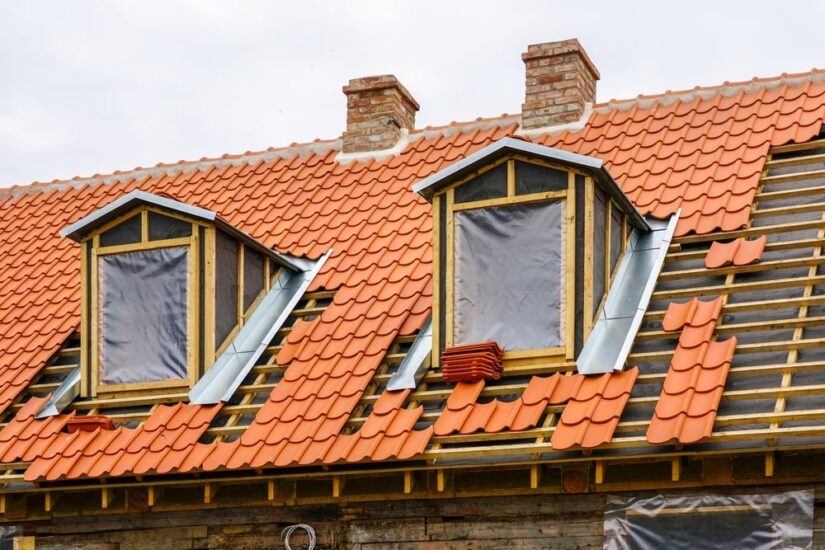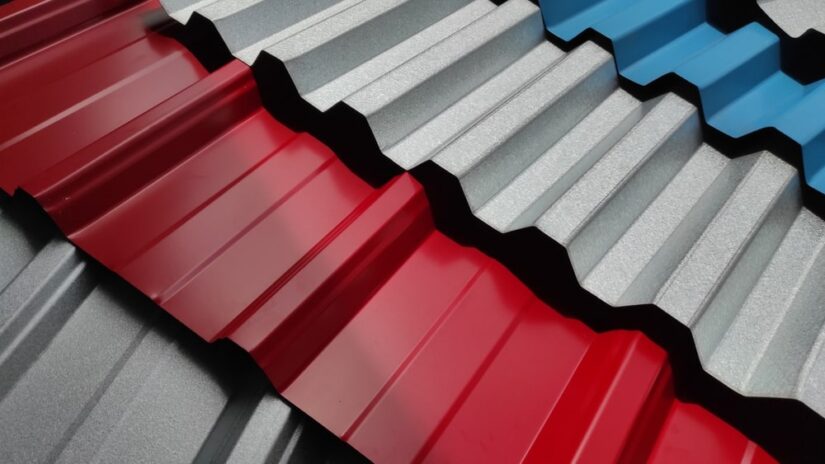What are the Different Types of Roofing Materials?
Whether you are constructing a new property or renovating an existing one, choosing the right roofing material is a decision that should not be taken lightly. The diverse array of roofing materials available on the market offers homeowners a plethora of options, each with its own set of advantages and drawbacks. From classic asphalt shingles to timeless slate roofing and modern metal alternatives, the different types of roofing choices can be overwhelming. After all, the roof is not only a fundamental component of a building’s structure but also a key element in its visual appeal and long-term durability.

Common Roofing Options for Indianapolis Properties
Asphalt Shingles
Asphalt shingles are one of the most popular roofing materials in North America, known for their affordability and versatility. They are made of fiberglass or organic materials coated with asphalt and mineral granules. They come in a variety of colors and styles, making them suitable for most residential applications. However, they may be prone to damage from extreme weather conditions and have a relatively shorter lifespan compared to other materials.
GAF, CertainTeed, and Owens Corning are some of the popular brands known for manufacturing quality asphalt shingles. They are typically installed by overlapping individual shingles from the bottom edge of the roof upward. This method helps shed water effectively and provides a waterproof barrier.
Pros of Asphalt Shingles
- Popular among budget-conscious homeowners
- Wide range of colors, textures, and styles
- Relatively lightweight and easy to install
- Readily available
Cons of Asphalt Shingles
- Shorter lifespan ranging from 15 to 30 years
- Susceptible to weather damage
- Requires timely maintenance and cleaning
- Significant environmental concerns
Metal Roofing
Metal roofing can be made from steel, aluminum, copper, or zinc. Each material offers durability and a modern aesthetic. Standing seam, corrugated, and metal tiles are common styles. Among different types of roofing, metal roofing materials have a long lifespan, often lasting 50+ years.
Metal roofing options are resistant to fire, rot, and insects, which makes them a durable option for various climates. Metal roofs are also highly reflective, helping to reduce heat absorption and lower cooling costs during hot weather. This is why they are usually preferred for factories and other commercial properties.
Pros of Metal Roofing
- Longer lifespan lasting 50 years or more
- Resistant to rain, snow, hail, fire, and mildew
- Reduces cooling costs by reflecting solar radiant heat
- Minimal maintenance
Cons of Metal Roofing
- Higher upfront costs
- Temperature changes can cause noise issues and fastener loosening
- Requires specialized skills and equipment
- Susceptible to denting from large hail or falling debris
Slate Roofing
Slate is a natural stone material known for its elegance and longevity. It adds a touch of sophistication to any architectural style. It is available in different colors and thicknesses, with variations in texture and pattern. However, slate roofing requires routine inspections and maintenance. This should be performed at least once or twice a year, ideally in the spring and fall.
Cracked or broken tiles can allow water to seep into the roof structure, leading to leaks and water damage. Accumulated debris can trap moisture and promote the growth of moss or algae, which can deteriorate slate tiles over time. You can help preserve the integrity and longevity of your slate roofing system by having roofing professionals inspect and repair it.

Pros of Slate Roofing
- Can last for a century if maintained properly
- Offers a timeless and elegant appearance
- Naturally fire-resistant
- Minimal maintenance compared to all roofing options
Cons of Slate Roofing
- Expensive in terms of materials and installation
- Heavy weight may require additional structural reinforcement
- Prone to chipping and cracking on heavy impacts
- Requires professional installation
Tile Roofing
Clay and concrete tiles are popular choices for Mediterranean and Spanish-style architecture. Some types of tile, such as clay or concrete, can last up to 50 years or more. Clay tiles offer timeless beauty and exceptional weather resistance, while concrete tiles are more affordable and come in a wide range of colors and designs.
Among various roofing options, tile roofing is known for its superior weather resistance, making it suitable for areas prone to high winds, hail, and heavy rain. There are various design options if you select tile roofing. You can choose from flat, curved, and interlocking profiles, to achieve a customized look for your home.
Pros of Tile Roofing
- Exceptional durability
- Variety of styles, colors, and textures
- Lowers insurance premium by being naturally fire-resistant
- Minimal maintenance
Cons of Tile Roofing
- More expensive upfront
- Requires structural reinforcement
- Individual tiles can crack on heavy impact
- Not suitable for steep slopes and complex roof designs
Wood Shakes and Shingles
Wood shakes are typically hand-split from logs, resulting in a thicker and more irregularly shaped roofing material compared to shingles. The splitting process creates a rough texture and uneven edges that contribute to the distinctive aesthetic of wood shakes. These irregularities give each shake a unique character, enhancing the overall visual appeal of the roof.
Contrary to common perception, wood shakes and shingles can be treated to enhance fire resistance, making them suitable for fire-prone areas. Wood is a natural insulator, providing some degree of thermal resistance. This can help regulate indoor temperatures and reduce energy costs, especially in colder climates. They can be made from various types of wood, including cedar, redwood, and cypress, each with its own unique characteristics and appearance.
Pros of Wood Shakes and Shingles
- Creates a warm and organic aesthetic
- Can last for several decades
- Regulates indoor temperature
- Environmentally sustainable roofing option
Cons of Wood Shakes and Shingles
- High maintenance
- Susceptible to weathering
- More expensive upfront
- Less readily available
Flat Roofing
Flat roofing refers to roofing systems with minimal slope or pitch, typically with a slope of 10 degrees or less. While flat roofs are commonly associated with commercial buildings, they are also found on residential properties, particularly in modern architecture and in regions with dry climates.
Flat roofs can be constructed using a variety of materials, each with its own advantages and disadvantages. Membrane roofing systems, such as TPO (thermoplastic polyolefin) and EPDM (ethylene propylene diene monomer), are popular choices for flat roofs due to their durability, flexibility, and ease of installation.
Pros of Flat Roofing
- More cost-effective to install
- Provides additional usable space
- Easier to access and maintain than pitched roofs
- Improved energy efficiency
Cons of Flat Roofing
- Water pooling can lead to structural damage, leaks, and premature deterioration
- Requires regular maintenance, including inspections, cleaning, and repairs
- Not suitable for all architectural styles and climates
- Shorter lifespan than pitched roofing materials
Factors to Consider When Choosing a Roofing Material
You should consult an experienced and professional Indianapolis roofing contractor when choosing between different types of roofing. These are a few factors you should consider:
- The climate of your region
- Durability and lifespan of different materials
- Maintenance requirements
- Aesthetic qualities and impact on curb appeal
- Initial cost and long-term value
Choose Jackson Contracting for the Roofing Materials that Fit Your Needs
At Jackson Contracting, we offer a comprehensive range of services, including residential roofing installations and repairs, commercial roofing solutions, roofing inspections and maintenance, roofing material selection and consultation, and gutter installations. Whether you need roof repairs, replacements, or installations, our skilled and experienced contractors have got you covered. We use quality materials and deliver excellent results. Don’t wait until it is too late. Call us today at 317-214-8124.
